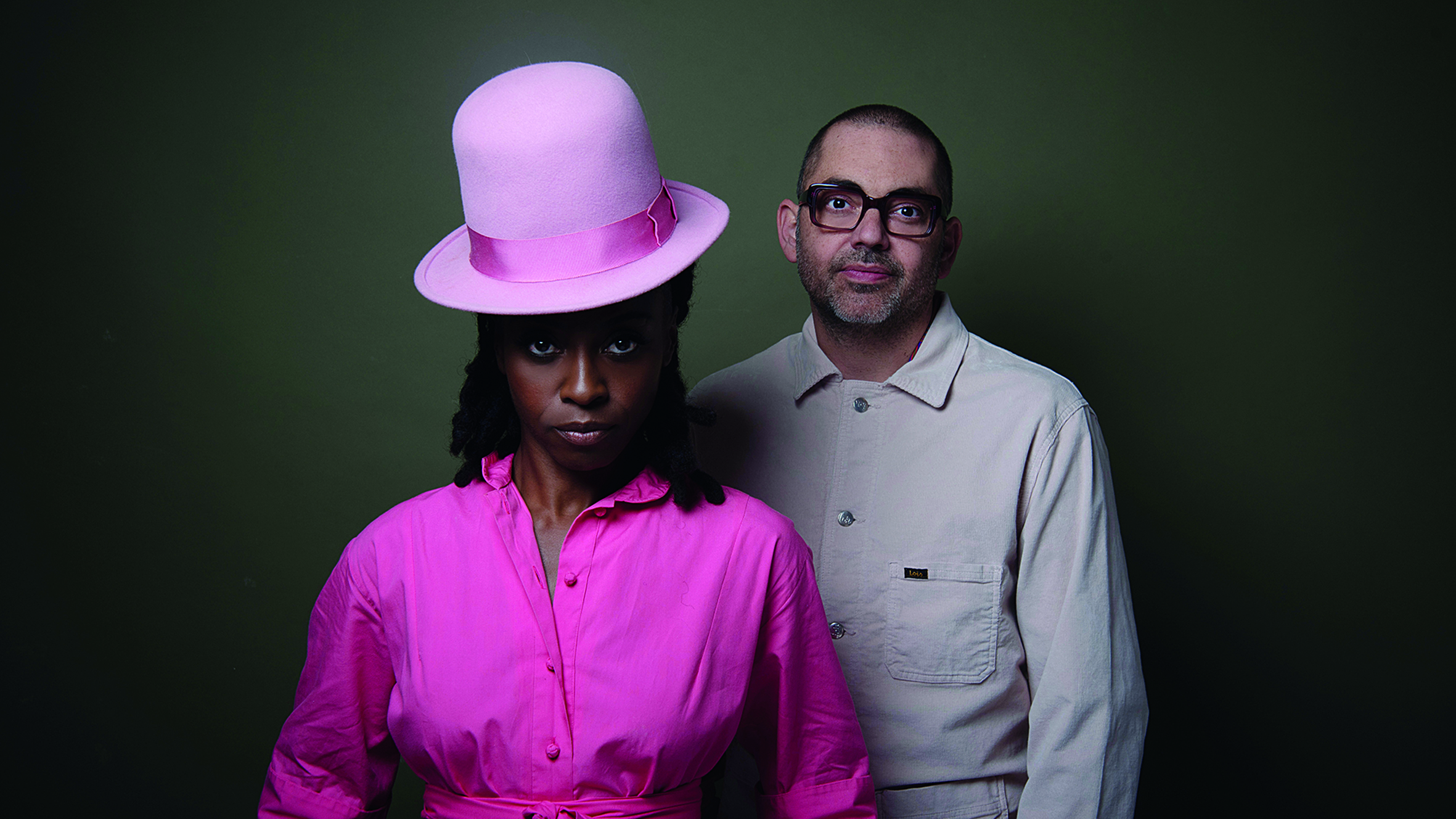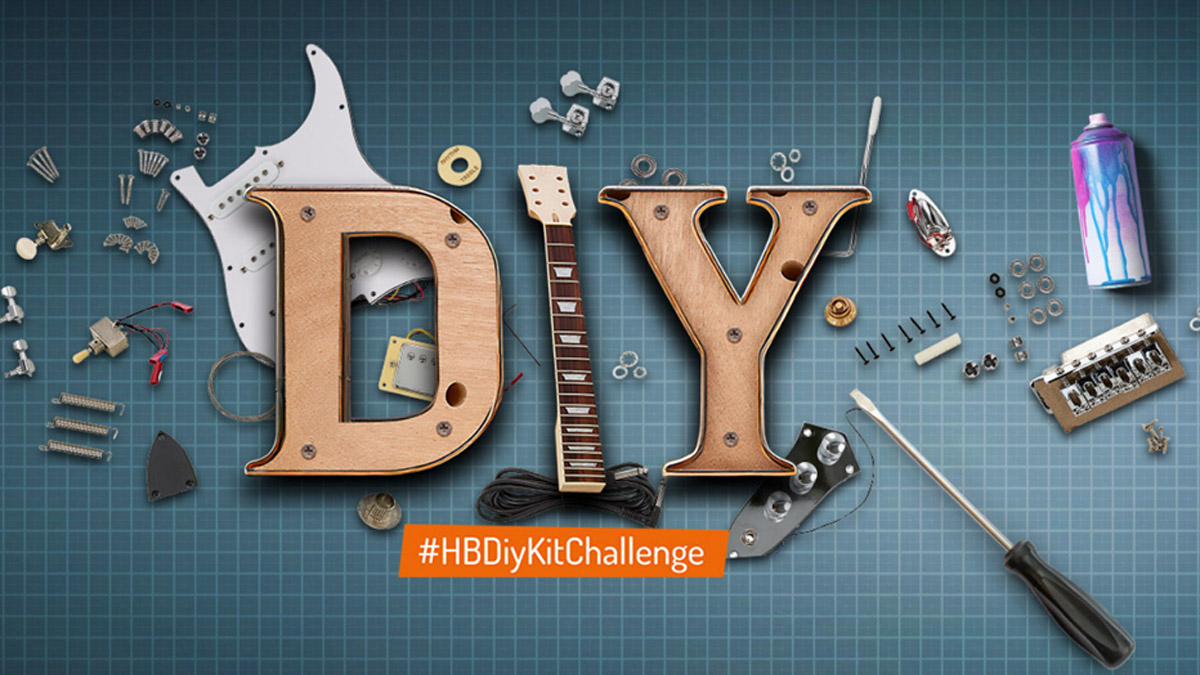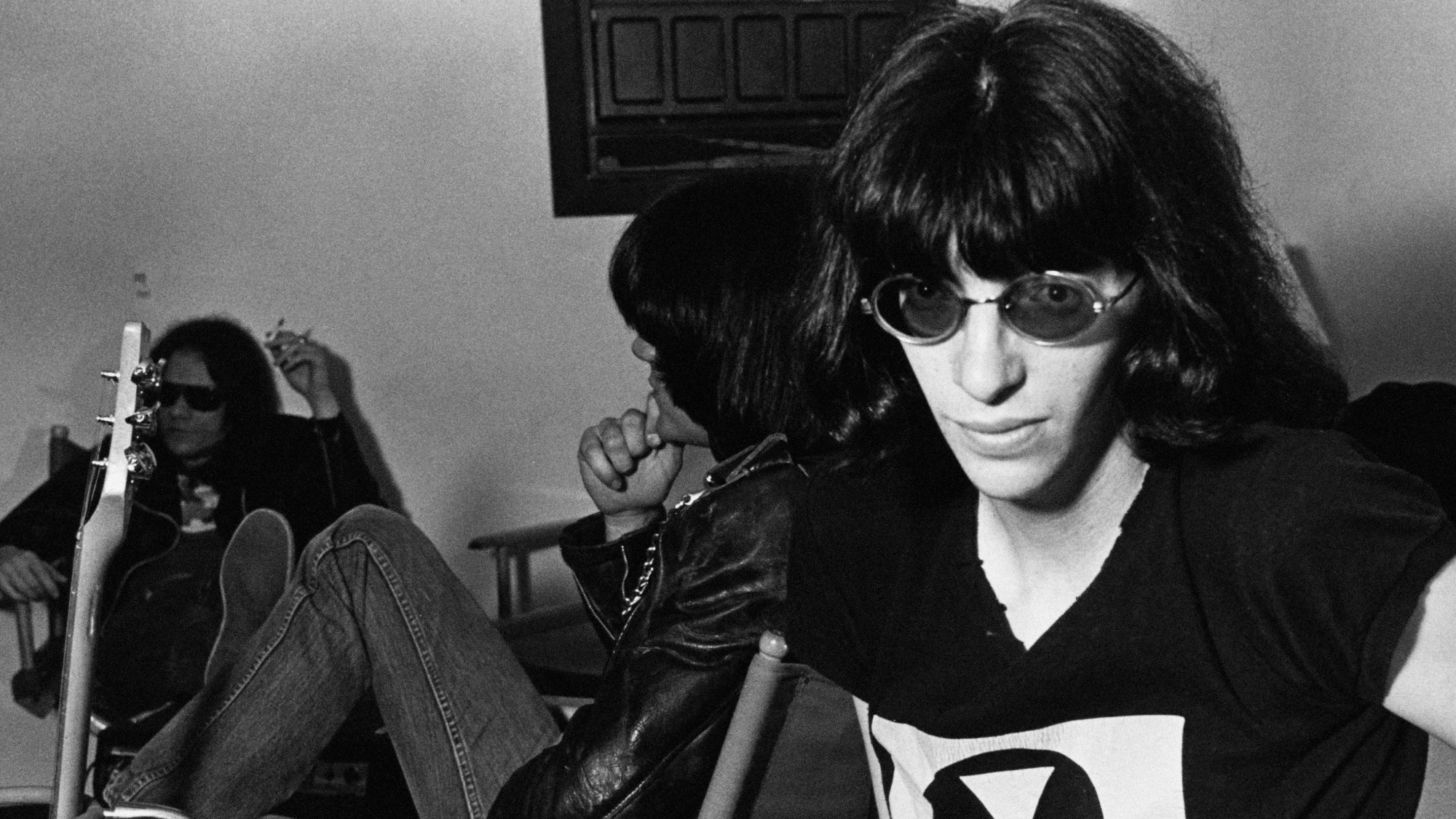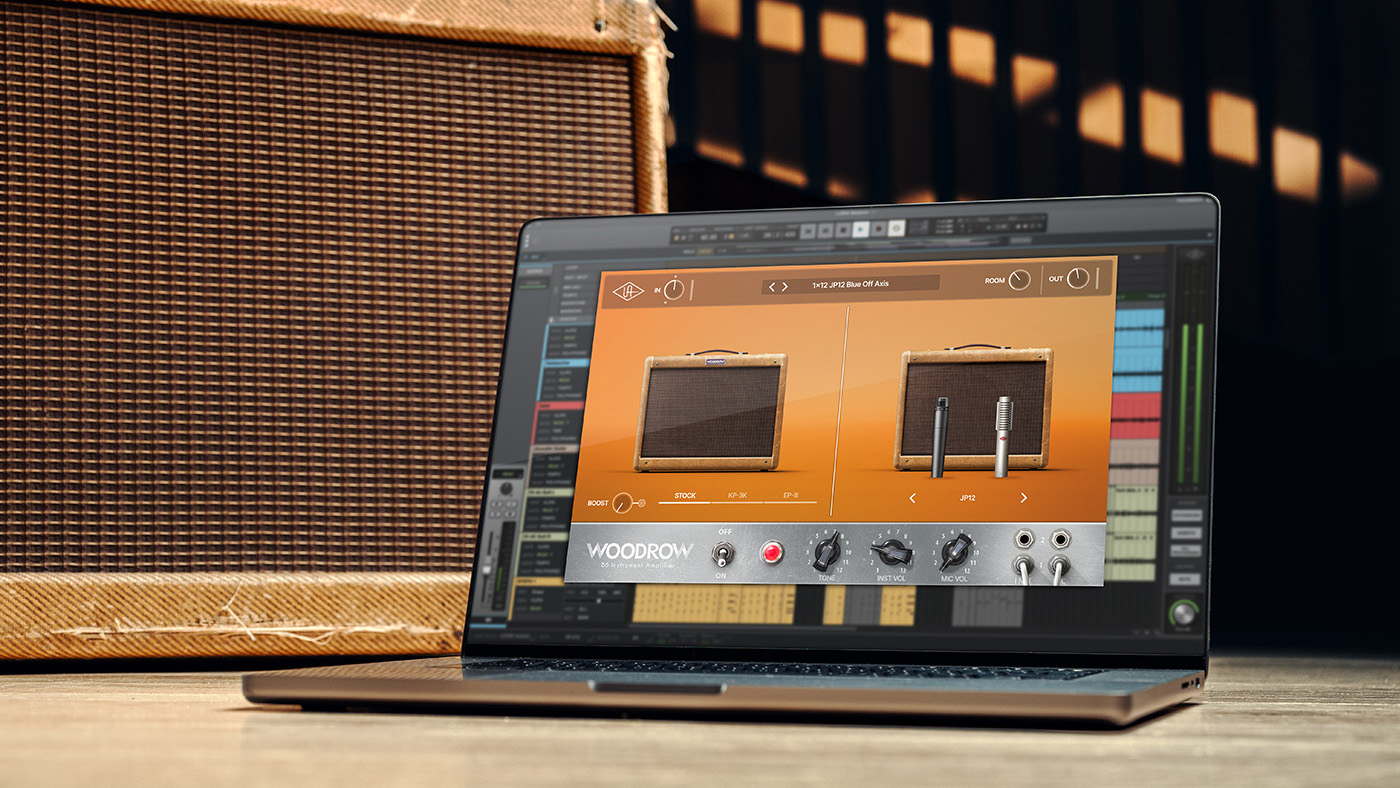15 questions for... Morcheeba: "It's best not to overwork things; it’s either good or it isn’t"
As producers of lush, downtempo tunes, Morcheeba have had more than a quarter of a century of success. It’s been quite a ride, and we’re not just talking about the transition from Atari to Mac…

Morcheeba return with their tenth studio album this year, although it’s not been the easiest of journeys, by any means (and consequently, really it’s actually their 11th release).
Brothers Paul and Ross Godfrey formed the band in the '90s, after meeting singer Skye Edwards, and released a succession of successful albums over the next decade, four of which went top 20 in the UK.
After the band’s Charanga album, however, Edwards left to be replaced by a string of other vocalists until she returned in 2010 for the band’s seventh album, Blood Like Lemonade.
Happy ever after? Not quite. Paul left the band in 2014, leaving Skye and Ross to record their next album under that name (2016’s Skye & Ross) rather than Morcheeba.
However the duo reverted to Morcheeba for 2018’s Blaze Away and this year’s latest offering, Blackest Blue. Why can’t brothers in music just get on? We asked Ross Godfrey for his thoughts…
1. Tell us how you got into music production in the first place?
Ross Godfrey: “Ever since I was a boy I have loved music of any kind. I started to play guitar at the age of seven and joined bands from 12 onwards. I was heavily influenced by Jimi Hendrix and blues artists like John Lee Hooker and Lightnin’ Hopkins. Later I started to get into early hip-hop and electro.”
Get the MusicRadar Newsletter
Want all the hottest music and gear news, reviews, deals, features and more, direct to your inbox? Sign up here.
2. When did you start to feel you were getting somewhere”?
RG: “From the age of about 15 I was playing professionally as a session player and doing gigs. I made enough money to buy food and marijuana.
"My brother [Paul] and I met Skye at a house party in London in 1994 and we wrote and recorded [debut single] Trigger Hippie together the following year.
"We released it on a small indie label and it became an underground hit so we recorded the album Who Can You Trust? and then started touring around the world.”
3. What is your overall music and production philosophy?
RG: “It is best not to have a plan because they always go wrong. Be adaptable and follow the magic wherever it leads you.”
4. Tell us about your ‘computer music’ production history?
RG: “We used Atari computers to trigger Akai samplers initially, and recorded the instruments onto ADATs or 2-inch tape.
"Around the year 2000, we upgraded to a Mac with Pro Tools. It was obviously a lot easier to edit things and it saved a lot of time; we didn’t need to splice tape together anymore!”
5. Tell us about the rest of the gear in your recording studio
RG: “I have a pretty basic setup now. Loads of vintage instruments and amps scatter the room with a Pro Tools system in the middle. I have a few nice mic pres and compressors to get a good sound going in. Even though everything ends up in a computer, it starts organically. I don’t use plugin instruments much but I do use them to process sounds.”
6. What are your favourite plugins?
RG: “I use Soundtoys a lot – EchoBoy and Tremolator are mainstays as they are very intuitive and sound vintage. Devil-Loc is great for getting some lo-fi crunch on things.
"I also love G-Force’s M-tron. I have enough old keyboards in my studio so having that in the box makes life easier; same goes for their Virtual String Machine. I mainly use that for Solina-type violin parts.
"The Valhalla Plate reverb is lovely for epic atmospheres. For quick dial-in compressors I use Waves Renaissance Vox and Axx for vocals and guitars respectively. They don’t need a lot of attention and bring everything to the front of the mix nicely.
"The Air Music Tech Spring Reverb and Phaser are used quite a lot too, to get some different colours for things that I recorded that I think sound a bit one dimensional.”
7. How do you tend to start a track?
RG: “Some tracks take 10 years, like the instrumental Sulphur Soul on Blackest Blue. I started it in Los Angeles and never finished it, then it cropped up recently and I finally got it finished.
"Others can take a few days, for example Falling Skies was recorded in less than a week. It really depends on what is needed and how inspired I feel at the time. I like to work very fast if possible, and the only thing that slows me down is plugging stuff in and getting the sounds working well.”
8. How do you know when a track’s done?
RG: “The point when I want to kill myself is usually a good indicator that the track is finished. It is best not to overwork things; it’s either good or it isn’t.”
9. Do you have any production tricks?
RG: “I learned this technique on recording acoustic guitar from John Martyn. I record my Martin D00016 acoustic guitar in the same way.
"I put a Royer Ribbon mic on the soundhole to get a clean sound. Then I plug the old 1950s DeArmond into a Watkins Dominator amp and mic that up with a Shure Unidyne mic to get a distorted bluesy sound. I then pan them 10 to 2 and put the Valhalla plate on the ribbon and the Air Spring on the amp to get a contrasting sound. Sometimes I put the amp through a Space Echo to get a dubby sound.”
10. Who else have you worked with for this?
RG: “Brad Barr from The Barr Brothers features on a track called Say It’s Over. I am a big fan of that band and was delighted when he agreed to collaborate. I wrote a piano part and sent it to him; he returned it with a mumbled scat vocal which Skye turned into a finished song. He re-recorded his vocals over in Montreal and sent them back to us.
"The point when I want to kill myself is usually a good indicator that the track is finished."
“Duke Garwood was somebody both Skye and I dreamed of recording with, so we plucked up the courage to ask him and he said ‘yes’. We got together down in Brighton at a little studio and recorded The Edge of the World.
"The contrast between Skye and Duke’s voice is great, like Nancy and Lee. Duke also blew a Raita clay pipe solo; he learned to play it in Morocco with the Master Musicians of JouJouka. Far Out!”
11. What’s on your gear shopping list?
RG: “I’d like a ’50s Telecaster but I’d have to sell my house to buy one. Modern gear-wise I think it would be good to have a modern modular synth. All the ones I have, like my EMS Synthi, are so old and delicate you spend more time fixing them than you do playing them.”
12. What studio tech would you like to see being developed?
RG: “The interface for using Pro Tools could be more intuitive; I hate learning key commands. I need a Bluetooth connection direct to my brain.”
13. Any advice for playing live and/or working in the studio?
RG: “I hate quiet in-ear stages. Turn the amps up and have some fun! As for being in the studio, it should be fun so if it isn’t, stop.
"Also it is best to learn how to do everything yourself these days so you know how it works and you don’t need an engineer when inspiration grabs you.”
14. What have you picked up from being in the industry that you can pass on?
RG: “Follow your own path; nobody did anything interesting by trying to fit in.”
15. What have you got coming up?
RG: “Blackest Blue comes out in May, and hopefully we’ll start playing shows when it’s safe. The record is an exotic trip to the deepest, darkest reaches of the soul. I’m also soon going to record an EP with my wife Amanda Zamolo.”
Morcheeba’s new album, Blackest Blue, is out now on Fly Agaric Records.


Computer Music magazine is the world’s best selling publication dedicated solely to making great music with your Mac or PC computer. Each issue it brings its lucky readers the best in cutting-edge tutorials, need-to-know, expert software reviews and even all the tools you actually need to make great music today, courtesy of our legendary CM Plugin Suite.










